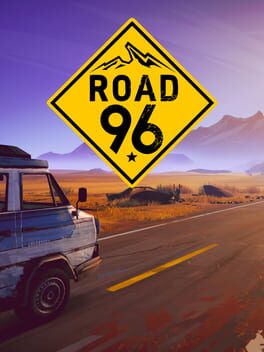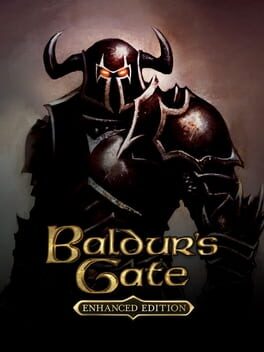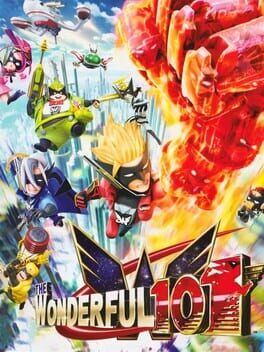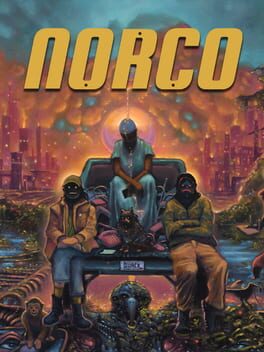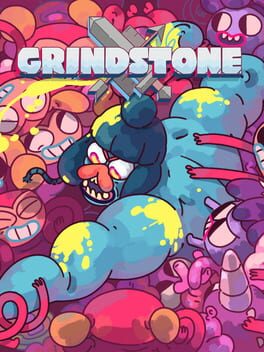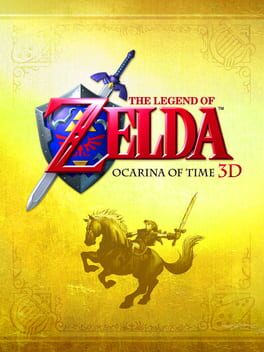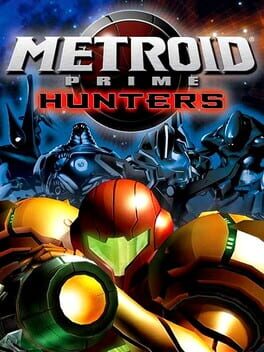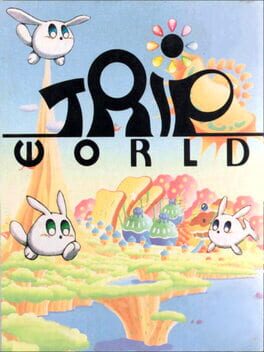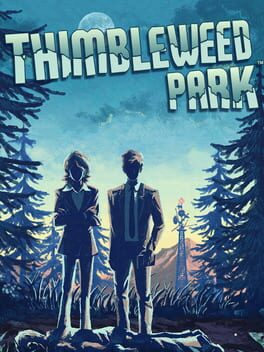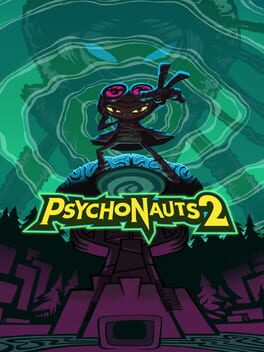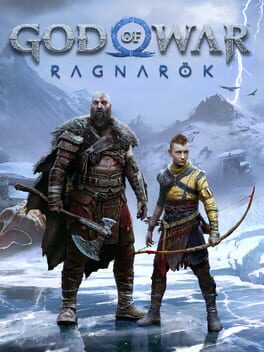caleb
140 Reviews liked by caleb
Road 96
2021
Given that this is DigiXart's first attempt at a novel concept (a partially-procgen narrative game with vaguely roguelike-inspired progression, though the game itself is definitely not a roguelite), it turned out quite well, with a mostly compelling cast of characters and a lot of narrative and mechanical variety across the episodes you'll stumble into along your road trip. The relatively short length of each episode helps break the pacing up and keeps it feeling fresh, as well.
That said, I do have some significant caveats: the various episodic interactions with the supporting characters tend to demand a lot of suspension of disbelief on the part of the player, as they frequently involve characters divulging personal information or making other implausible requests to a teenager they just met. The narrative's overarching premise of "road trip to escape a totalitarian state" is also handled in about as thoroughly apolitical a manner as possible, with little to no attempt on DigiXart's part to flesh out the ideology of the state, the Black Brigades group rebelling against it, or the nature of its internal repression, or why it is that teenagers seem to be the only ones trying to cross the border. Road 96 is still well worth playing for fans of narrative games and I enjoyed the large majority of my time with it, but its failure to engage more substantively with its own premise is a significant missed opportunity.
also, forgot to mention that there's a song that plays a lot in this that sounds way too much like Train's "Hey, Soul Sister" for its own good
That said, I do have some significant caveats: the various episodic interactions with the supporting characters tend to demand a lot of suspension of disbelief on the part of the player, as they frequently involve characters divulging personal information or making other implausible requests to a teenager they just met. The narrative's overarching premise of "road trip to escape a totalitarian state" is also handled in about as thoroughly apolitical a manner as possible, with little to no attempt on DigiXart's part to flesh out the ideology of the state, the Black Brigades group rebelling against it, or the nature of its internal repression, or why it is that teenagers seem to be the only ones trying to cross the border. Road 96 is still well worth playing for fans of narrative games and I enjoyed the large majority of my time with it, but its failure to engage more substantively with its own premise is a significant missed opportunity.
also, forgot to mention that there's a song that plays a lot in this that sounds way too much like Train's "Hey, Soul Sister" for its own good
I posted previously about trying to play Baldur's Gate 2 but struggling with the age of the game. I found BG2 slow, confusing, dated, and did I mention [b]confusing?[/b] I put it down for some time but decided to start reading up on the Advanced Dungeons and Dragons 2 rules during my commute to and from work. This gave me the foundation I needed to understand what was happening under the hood. I started a beginner-friendly fighter/cleric as advised by Reddit and the Beamdog forums. I tried again...and it was better. I tried the next night, and [i]oh my god[/i], it clicked! It's still an outdated, confusing system, but it made sense!
Let me explain how unintuitive the systems can be briefly...
THAC0 is your chance to hit against an enemy with 0 armour class. THAC0 = 10 therefor means you roll a d20 dice and will hit on 10+ (50% chance). You subtract the enemy AC from this, so THAC0 = 10 rolling to hit AC = 5 means you hit on 10 - 5 = 5. This means that a [i]lower[/i] AC is better than a higher one which is unintuitive for people familiar with modern RPG design. Armour isn't additive, so wearing a full plate armour sets your AC to 1 (but this differs based on piercing, crushing etc. damage which isn't immediately obvious).
Now for the absurd part. If that plate armour is enchanted with a +2 to AC, you'd expect it to be worse. We want a [i]lower[/i] AC, right? Well...The +2 to AC indicates that it's a buff, so it [i]actually[/i] means it's a -2 to AC. Okay, so +(stat) on our gear is [i]lowering[/i] our stats, which is great! But what about the +5 HP on that same piece? Well, that doesn't count and it is just a pure addition. Our 20 HP fighter now has -2 to AC, but +5 to HP which is actually very strong at early levels. It's just communicated so poorly and does not help onboard new players at all.
With all of that (mostly) understood, I quickly poured 25 hours into BG2 and started to need [i]more.[/i] Realising that this was such a special gaming experience, I decided to put my playthrough on hold and start at the beginning with Baldurs Gate 1; I wanted to do it the right way, and understand all of the back story and characters.
Knowing arcane magic was giving me trouble in BG2, I decided to throw caution to the wind and roll a mage. Best way to learn is by doing, right? I was immediately confronted by the age of the game. Despite it being "enhanced", it still felt considerably more dated than BG2. However, it's shocking how quickly those feelings melt away when you start playing. There is SO much to discover, and it's essentially a zone-based open-world game. There were way more recruitable companions than I expected, and the pool of spells I could find, try to learn, and eventually kill my party casting was incredible! Build diversity is through the roof, party composition feels limitless (I ended up choosing to forgo the 6-person max and focus on a smaller team which would earn more EXP, totally viable!).
The story was [i]fine[/i], maybe a little predictable but it had some nice layers. Party members were far less fleshed out than BG2, but it was the mechanical depth that I was playing for so I did not mind. I played through on "core" settings, which are 1 step up from normal (normal toning down the default DnD rules to better fit a videogame). It felt like a good difficulty with the occasional death-by-dice. Because you start at level 1, there is a lot more variance in how fights play out - sometimes it just takes one lucky hit for you or an enemy to be killed, and both of you will be missing a [i]lot[/i] until endgame. I actually think I prefer this over BG2, because little upgrades matter so much more; you scour each area for resources, and a simple +1 sword can be a huge upgrade because you can actually [i]hit[/i] things with it. Now imagine how I felt when I reached my higher tiers of spellcasting and was getting 3-4 100% accurate magic missiles per cast!
My only real issue now is how these games don't let you view enemy stats/buffs/spells. I'd love to know exactly what I need to roll to hit (for now I just have to make a guess based on my rolls). I'd also like to be able to see exactly which buff the pesky mage has cast so I can learn how to debuff it. There's a certain charm in fighting the unknown and learning as you go, but I think this can still be done while being a tad more transparent about the game mechanics and not requiring me to keep a wiki open while I play. But with that being said, I'll take this intelligent, mechanically deep system over modern Bioware simplicity any day of the week.
I've imported my mage and cool gear into BG2 and am excited to start fresh. I've already noticed some very cool references to the first game, some of which hit me a hell of a lot harder than my first time through the intro. However, I need a little break before soldering on.
I can see why this series is so highly regarded, BG1EE was one of the best RPG gaming experiences I've ever had.
Let me explain how unintuitive the systems can be briefly...
THAC0 is your chance to hit against an enemy with 0 armour class. THAC0 = 10 therefor means you roll a d20 dice and will hit on 10+ (50% chance). You subtract the enemy AC from this, so THAC0 = 10 rolling to hit AC = 5 means you hit on 10 - 5 = 5. This means that a [i]lower[/i] AC is better than a higher one which is unintuitive for people familiar with modern RPG design. Armour isn't additive, so wearing a full plate armour sets your AC to 1 (but this differs based on piercing, crushing etc. damage which isn't immediately obvious).
Now for the absurd part. If that plate armour is enchanted with a +2 to AC, you'd expect it to be worse. We want a [i]lower[/i] AC, right? Well...The +2 to AC indicates that it's a buff, so it [i]actually[/i] means it's a -2 to AC. Okay, so +(stat) on our gear is [i]lowering[/i] our stats, which is great! But what about the +5 HP on that same piece? Well, that doesn't count and it is just a pure addition. Our 20 HP fighter now has -2 to AC, but +5 to HP which is actually very strong at early levels. It's just communicated so poorly and does not help onboard new players at all.
With all of that (mostly) understood, I quickly poured 25 hours into BG2 and started to need [i]more.[/i] Realising that this was such a special gaming experience, I decided to put my playthrough on hold and start at the beginning with Baldurs Gate 1; I wanted to do it the right way, and understand all of the back story and characters.
Knowing arcane magic was giving me trouble in BG2, I decided to throw caution to the wind and roll a mage. Best way to learn is by doing, right? I was immediately confronted by the age of the game. Despite it being "enhanced", it still felt considerably more dated than BG2. However, it's shocking how quickly those feelings melt away when you start playing. There is SO much to discover, and it's essentially a zone-based open-world game. There were way more recruitable companions than I expected, and the pool of spells I could find, try to learn, and eventually kill my party casting was incredible! Build diversity is through the roof, party composition feels limitless (I ended up choosing to forgo the 6-person max and focus on a smaller team which would earn more EXP, totally viable!).
The story was [i]fine[/i], maybe a little predictable but it had some nice layers. Party members were far less fleshed out than BG2, but it was the mechanical depth that I was playing for so I did not mind. I played through on "core" settings, which are 1 step up from normal (normal toning down the default DnD rules to better fit a videogame). It felt like a good difficulty with the occasional death-by-dice. Because you start at level 1, there is a lot more variance in how fights play out - sometimes it just takes one lucky hit for you or an enemy to be killed, and both of you will be missing a [i]lot[/i] until endgame. I actually think I prefer this over BG2, because little upgrades matter so much more; you scour each area for resources, and a simple +1 sword can be a huge upgrade because you can actually [i]hit[/i] things with it. Now imagine how I felt when I reached my higher tiers of spellcasting and was getting 3-4 100% accurate magic missiles per cast!
My only real issue now is how these games don't let you view enemy stats/buffs/spells. I'd love to know exactly what I need to roll to hit (for now I just have to make a guess based on my rolls). I'd also like to be able to see exactly which buff the pesky mage has cast so I can learn how to debuff it. There's a certain charm in fighting the unknown and learning as you go, but I think this can still be done while being a tad more transparent about the game mechanics and not requiring me to keep a wiki open while I play. But with that being said, I'll take this intelligent, mechanically deep system over modern Bioware simplicity any day of the week.
I've imported my mage and cool gear into BG2 and am excited to start fresh. I've already noticed some very cool references to the first game, some of which hit me a hell of a lot harder than my first time through the intro. However, I need a little break before soldering on.
I can see why this series is so highly regarded, BG1EE was one of the best RPG gaming experiences I've ever had.
The Wonderful 101
2013
A Short Hike
2019
Norco
2022
Norco
2022
The comparisons are too easy to make. A narrative driven independent game with lush prose that dabbles in magical realism and science fiction as it confronts visions of both the future and past. It also happens to be set in a version of our world (in this case, the American South) that has been skewed, deals with themes of labor politics and the plight of the working class, and draws on and reinvents design philosophies from decades year old games. The comparisons make themselves. That’s why I am doing my damnedest not to say those games’ names, because to do so robs Norco of its own, distinct identity. It’s torture not to draw line after line between its constituent elements to its counterparts for the sake of preserving that identity, maybe especially because I think Norco is experiencing an identity crisis of its own.
Let me be unequivocal: Norco is a good game. I think it’s worth playing. There’s a part of me that feels bad for offering an emphasis on criticism, as if I’m kicking down a darling indie game. So I’m trying to be particularly explicit here: I think Norco is a good game. It’s filled with beautiful writing, unique characters, and potent themes of grief and politics. It has things to say. But I’m not sure Norco is quite sure what those things exactly are.
I have biases, and two in particular that I arrive at here: I care disproportionately about endings, and I care greatly about “aboutness”. Norco’s ending fell flat for me, and I struggle to know for sure what it’s truly about. These are my biases. As I’ve just said, there are so many reasons to love this game. That’s not what I’m going to write about here. I’m going to write about what keeps me from truly loving Norco.
I think I disproportionately weight endings in narratives because they are what stories leave you with. When you walk out of the theater, the thing that is mostly immediately carried with you is the last frames before the credits rolled. Games, historically, do not have great endings. I don’t mean mechanically; there are lots of games with great final bosses and all that. But the narrative ending, the last moments, these are usually unnoteworthy, and it’s usually brushed off. With narrative driven work, however, this is a little harder to forgive. Of course, everyone likes different kinds of endings. I am picky with my endings, I’ll admit, but I try to have a nuanced understanding of what does and doesn’t work with me in an ending. Enter Norco.
Norco’s ending, by which I mean the exact final moments before the credits roll, feel rushed and incomplete. It is in desperate need of a denouement. It’s ironic, because the climax of this game is flanked, quite literally, with two beautiful moments on the left on the right, one of which is perhaps the game’s most beautiful sequence. I will not spoil it, but it is an ethereal, melancholy, and haunting image of memories and home. I almost wish moment was positioned as the Norco’s last moments, because this potency is immediately undercut by the climax, which felt bereft of catharsis. And I think the reason this climax fell so flat for me is because it relied on the motives of the main character, whose identity and desires are opaque and indistinct.
Kay, the protagonist, never feels like she is given the opportunity to become a character of her own. Blake, her brother, almost feels like one, but is mostly off screen. The companions you encounter feel like characters. They have motives, interiority, likes and dislikes, quirks. Catherine, Kay’s deceased mother, who you play as in flashbacks, gets to be a character, too. This is welcome; rather than just being a grief object for the protagonist, Catherine gets to be a person. So rarely are stories about grief as much centered on who we lose as how we lose them. But what about Kay? What are Kay’s feelings? What does Kay want, need? What does she like or dislike? I’m not sure I could tell you anything about her, despite having spent hours in her shoes. I felt more empathetic and understanding of its side characters by the end. All I know about Kay for sure is that she is detached.
A detached character is obviously not a bad thing, and detachment serves an important role here. Kay’s detachment, as I read it, is representative of a response to what feels to many young people like the slow march into a catastrophe by modern industrial society. It is very intentional, and the rare moments where Kay’s detachment is overtly characterized, it is felt strongly. But when a game builds up to a climax which centers on the characters goals, motives, and desires, her own specific relations and history, all of which are deliberately muted and blurred… I struggle to be moved by that climax and its ever brief ending.
Kay is neither a cipher nor a character you roleplay as. I don’t know what she’s supposed to be. She’s not me, but who is she? I can neither imagine myself as her or imagine her as someone else. Like the game itself, the player is in a crisis of identity.
Norco is kind of a mess, both narratively and mechanically. It’s modeled after classic adventure games, but the puzzle design is a far cry from that old school style -- which is not something I’m exactly mourning. Those puzzles were notoriously arcane and absurd, an ethos that has aged in quite a way, and it wouldn’t have worked here. Norco’s puzzles are relatively straight forward and signposted heavily, and you can ask for advice. But Norco also has a combat system. And it has mini-games. A lot of them. Most of these mini-game puzzles are fine. Nothing exceptional, but nothing horrible. There is one bit I did think was excellent and well executed, which I won’t get into again for spoilers, but involves a boat. But I truly have no idea why this game has combat. It’s not fun and just feels silly. And this lack of cohesion is also seen in its thematic underpinnings.
The themes are easy enough to identify: the struggles of the working class, religion’s social role, messianic myth, the desire to find meaning under late capitalism, ironic middle class hipsterism, the ever-extravagant machinations of the bourgeoisie, and so on. But these themes are neither explored on their own fronts nor are they unified by any central theme. The “Mind Map”, which is an interior display of the lore and relationships in Kay’s life (again, trying not to make the comparison here) is dense with connections but not with cohesion. There is some fascinating world-building and cool ideas in here. But where do they lead to?
Obviously I don’t think it’s necessary that a “message” be had in art, but when you neither pose questions nor offer answers, it can begin to feel more like these themes are props. Norco mostly acknowledges and maybe comments on its phenomena. Again, that’s not intrinsically bad, but I have my preferences, and the absence of direction doesn’t work for me here. All of it is cool, sure. But I don’t know what to make of it, and not in a way that fills me with giddy curiosity. I didn’t leave Norco with any questions, for either its world or for my own.
Again, I feel guilt, “damning with faint praise”, but I seem to be in the minority here, which is nice, I guess. It makes me feel a little more comfortable offering criticism. After all, I can find plenty of ecstatic analyses of Norco, but not as much where I’m coming from. I see why others have fallen in love with it. But I never got that far. Maybe I’ll grow more fond after reading criticism and other’s feelings. But this was my initial response, and that counts for something.
Norco, at its core, ends up as a collage, so scattered as to almost resemble a pastiche of itself. It’s soup full of scoopfuls of ideas that have been lightly emulsified. Collages can be good. And Norco is good. Its lack of thematic and structural direction does not nullify all the beauty therein, but it is why I don’t think I’ll ever get goosebumps when I think about it.
Let me be unequivocal: Norco is a good game. I think it’s worth playing. There’s a part of me that feels bad for offering an emphasis on criticism, as if I’m kicking down a darling indie game. So I’m trying to be particularly explicit here: I think Norco is a good game. It’s filled with beautiful writing, unique characters, and potent themes of grief and politics. It has things to say. But I’m not sure Norco is quite sure what those things exactly are.
I have biases, and two in particular that I arrive at here: I care disproportionately about endings, and I care greatly about “aboutness”. Norco’s ending fell flat for me, and I struggle to know for sure what it’s truly about. These are my biases. As I’ve just said, there are so many reasons to love this game. That’s not what I’m going to write about here. I’m going to write about what keeps me from truly loving Norco.
I think I disproportionately weight endings in narratives because they are what stories leave you with. When you walk out of the theater, the thing that is mostly immediately carried with you is the last frames before the credits rolled. Games, historically, do not have great endings. I don’t mean mechanically; there are lots of games with great final bosses and all that. But the narrative ending, the last moments, these are usually unnoteworthy, and it’s usually brushed off. With narrative driven work, however, this is a little harder to forgive. Of course, everyone likes different kinds of endings. I am picky with my endings, I’ll admit, but I try to have a nuanced understanding of what does and doesn’t work with me in an ending. Enter Norco.
Norco’s ending, by which I mean the exact final moments before the credits roll, feel rushed and incomplete. It is in desperate need of a denouement. It’s ironic, because the climax of this game is flanked, quite literally, with two beautiful moments on the left on the right, one of which is perhaps the game’s most beautiful sequence. I will not spoil it, but it is an ethereal, melancholy, and haunting image of memories and home. I almost wish moment was positioned as the Norco’s last moments, because this potency is immediately undercut by the climax, which felt bereft of catharsis. And I think the reason this climax fell so flat for me is because it relied on the motives of the main character, whose identity and desires are opaque and indistinct.
Kay, the protagonist, never feels like she is given the opportunity to become a character of her own. Blake, her brother, almost feels like one, but is mostly off screen. The companions you encounter feel like characters. They have motives, interiority, likes and dislikes, quirks. Catherine, Kay’s deceased mother, who you play as in flashbacks, gets to be a character, too. This is welcome; rather than just being a grief object for the protagonist, Catherine gets to be a person. So rarely are stories about grief as much centered on who we lose as how we lose them. But what about Kay? What are Kay’s feelings? What does Kay want, need? What does she like or dislike? I’m not sure I could tell you anything about her, despite having spent hours in her shoes. I felt more empathetic and understanding of its side characters by the end. All I know about Kay for sure is that she is detached.
A detached character is obviously not a bad thing, and detachment serves an important role here. Kay’s detachment, as I read it, is representative of a response to what feels to many young people like the slow march into a catastrophe by modern industrial society. It is very intentional, and the rare moments where Kay’s detachment is overtly characterized, it is felt strongly. But when a game builds up to a climax which centers on the characters goals, motives, and desires, her own specific relations and history, all of which are deliberately muted and blurred… I struggle to be moved by that climax and its ever brief ending.
Kay is neither a cipher nor a character you roleplay as. I don’t know what she’s supposed to be. She’s not me, but who is she? I can neither imagine myself as her or imagine her as someone else. Like the game itself, the player is in a crisis of identity.
Norco is kind of a mess, both narratively and mechanically. It’s modeled after classic adventure games, but the puzzle design is a far cry from that old school style -- which is not something I’m exactly mourning. Those puzzles were notoriously arcane and absurd, an ethos that has aged in quite a way, and it wouldn’t have worked here. Norco’s puzzles are relatively straight forward and signposted heavily, and you can ask for advice. But Norco also has a combat system. And it has mini-games. A lot of them. Most of these mini-game puzzles are fine. Nothing exceptional, but nothing horrible. There is one bit I did think was excellent and well executed, which I won’t get into again for spoilers, but involves a boat. But I truly have no idea why this game has combat. It’s not fun and just feels silly. And this lack of cohesion is also seen in its thematic underpinnings.
The themes are easy enough to identify: the struggles of the working class, religion’s social role, messianic myth, the desire to find meaning under late capitalism, ironic middle class hipsterism, the ever-extravagant machinations of the bourgeoisie, and so on. But these themes are neither explored on their own fronts nor are they unified by any central theme. The “Mind Map”, which is an interior display of the lore and relationships in Kay’s life (again, trying not to make the comparison here) is dense with connections but not with cohesion. There is some fascinating world-building and cool ideas in here. But where do they lead to?
Obviously I don’t think it’s necessary that a “message” be had in art, but when you neither pose questions nor offer answers, it can begin to feel more like these themes are props. Norco mostly acknowledges and maybe comments on its phenomena. Again, that’s not intrinsically bad, but I have my preferences, and the absence of direction doesn’t work for me here. All of it is cool, sure. But I don’t know what to make of it, and not in a way that fills me with giddy curiosity. I didn’t leave Norco with any questions, for either its world or for my own.
Again, I feel guilt, “damning with faint praise”, but I seem to be in the minority here, which is nice, I guess. It makes me feel a little more comfortable offering criticism. After all, I can find plenty of ecstatic analyses of Norco, but not as much where I’m coming from. I see why others have fallen in love with it. But I never got that far. Maybe I’ll grow more fond after reading criticism and other’s feelings. But this was my initial response, and that counts for something.
Norco, at its core, ends up as a collage, so scattered as to almost resemble a pastiche of itself. It’s soup full of scoopfuls of ideas that have been lightly emulsified. Collages can be good. And Norco is good. Its lack of thematic and structural direction does not nullify all the beauty therein, but it is why I don’t think I’ll ever get goosebumps when I think about it.
Grindstone
2019
Very fun and pretty puzzle game that is, for some God forsaken reason, designed like a mtx infected freemium game.
There's a million currencies and the game is extremely stingy with power ups. Basic gear has usage per level but more fancy stuff have limited use and require you to go back to base and repair it with currencies, you even have to pay to heal.
Now there's no scarcity of resources but it discourages experimentation and kills the pacing.
Still, I'm having fun with it
There's a million currencies and the game is extremely stingy with power ups. Basic gear has usage per level but more fancy stuff have limited use and require you to go back to base and repair it with currencies, you even have to pay to heal.
Now there's no scarcity of resources but it discourages experimentation and kills the pacing.
Still, I'm having fun with it
Having not played this in more than decade I'm now somewhat at peace with this game. It's a classic and for good reason, but it does show its age.
It translates almost everything from previous Zelda games perfectly well into 3D (as well as laying foundations for 3D gaming for the coming decades) and actually establishes Zelda lore that stays relevant to this day. Playing it is not always fun though.
Not so much on a technical standpoint (at least concerning this remake), here everything works reasonably well, it's just that some of the pacing and dungeon design is really not so fun.
I kinda hate that grown-up Link's first three dungeon are thematically repeats of the first three dungeons. Forest, Fire and Water... Again (it's not like we don't see these three in every Zelda anyways). As Hyrule has been overrun by Ganondorf and his monsters everything is kinda... empty. Up until that point when you visit a place it's really exciting to get to know the quirky people and maybe discover the place, but not so much for the Forest, Fire and Water Temple. Right after with the Shadow and Spirit Temple this becomes really good again, but for a good third of the game it feels a bit like a mindless dungeon run. I mean, we love Zelda puzzles but we also love imaginative places and eccentric characters. The dungeons themselves aren't even too bad (except the Water Temple: too many locked doors and thus backtracking if you missed a single key) it's just the way to get there misses a sense of wonder and adventure.
The world design especially of the Hyrule Steppe is nothing but empty plains and the day and night cycle is incredibly short, which can get annoying if you wanna go somewhere or need a special time of the day to enter a place for example.
All that said, yeah this was a part of my childhood (mostly by seeing it at friends places. I didn't have a N64 but only a SNES back in the day) and back then I thought this is the greatest game of all time. Consequently it really defined my taste in games. Later when I revisited it after playing Wind Waker, Twilight Princess and a couple of Final Fantasy games, it just felt hollow and "not as sophisticated" concerning it's story as well as it's mechanics
(and all the cool side quests I "remembered" from watching a friend were actually in Majora's Mask, so that's probably why I like that one still more).
Now with a bit of distance I can enjoy it again, but I still think it's not the best 3D Zelda game by a long shot. But it's still good. Pretty good.
It translates almost everything from previous Zelda games perfectly well into 3D (as well as laying foundations for 3D gaming for the coming decades) and actually establishes Zelda lore that stays relevant to this day. Playing it is not always fun though.
Not so much on a technical standpoint (at least concerning this remake), here everything works reasonably well, it's just that some of the pacing and dungeon design is really not so fun.
I kinda hate that grown-up Link's first three dungeon are thematically repeats of the first three dungeons. Forest, Fire and Water... Again (it's not like we don't see these three in every Zelda anyways). As Hyrule has been overrun by Ganondorf and his monsters everything is kinda... empty. Up until that point when you visit a place it's really exciting to get to know the quirky people and maybe discover the place, but not so much for the Forest, Fire and Water Temple. Right after with the Shadow and Spirit Temple this becomes really good again, but for a good third of the game it feels a bit like a mindless dungeon run. I mean, we love Zelda puzzles but we also love imaginative places and eccentric characters. The dungeons themselves aren't even too bad (except the Water Temple: too many locked doors and thus backtracking if you missed a single key) it's just the way to get there misses a sense of wonder and adventure.
The world design especially of the Hyrule Steppe is nothing but empty plains and the day and night cycle is incredibly short, which can get annoying if you wanna go somewhere or need a special time of the day to enter a place for example.
All that said, yeah this was a part of my childhood (mostly by seeing it at friends places. I didn't have a N64 but only a SNES back in the day) and back then I thought this is the greatest game of all time. Consequently it really defined my taste in games. Later when I revisited it after playing Wind Waker, Twilight Princess and a couple of Final Fantasy games, it just felt hollow and "not as sophisticated" concerning it's story as well as it's mechanics
(and all the cool side quests I "remembered" from watching a friend were actually in Majora's Mask, so that's probably why I like that one still more).
Now with a bit of distance I can enjoy it again, but I still think it's not the best 3D Zelda game by a long shot. But it's still good. Pretty good.
Trip World
1992
A Kirby game if Kirby was the character in "I Have No Mouth and I Must Scream" who turned into the flesh monster biologically unable to harm anything.
Would have loved a game that lets you choose how much you want to interact with the other sprites, but not this one. I've heard of games that give you special abilities that are suitable for different areas, but this is the first I've played that expects you to intuitively know where and when you will even have one available. What's that, you want to attack the boss? Sure, just use this kick attack with a range the length of a cut thumbnail. What, you want your long tail attack? Sorry, that was for two screens ago. Remember that level where you could turn into a fish? Now you'll just turn into a fish whenever I want, and it will be very funny watching you flop around as a fish on dry land for a moment. Hm, there's a power up there that's rather high up, I'd sure like to use my flying ability now. Too bad, suck on this fish power, bitch.
Would have loved a game that lets you choose how much you want to interact with the other sprites, but not this one. I've heard of games that give you special abilities that are suitable for different areas, but this is the first I've played that expects you to intuitively know where and when you will even have one available. What's that, you want to attack the boss? Sure, just use this kick attack with a range the length of a cut thumbnail. What, you want your long tail attack? Sorry, that was for two screens ago. Remember that level where you could turn into a fish? Now you'll just turn into a fish whenever I want, and it will be very funny watching you flop around as a fish on dry land for a moment. Hm, there's a power up there that's rather high up, I'd sure like to use my flying ability now. Too bad, suck on this fish power, bitch.
Dark Souls III
2016
Thimbleweed Park
2017
Platinum trophy earned, including complete playthrough on both casual and hard modes. A delightful throwback to the days of the classic LucasArts-style point-and-click adventure games (which I loved in their time), I thoroughly enjoyed Thimbleweed Park. While the game makes use of an interface very much like the SCUMM system used by those older games, there are intelligent improvements coming from more modern game design - for the most part, puzzle solutions make sense, limiting the extent to which trial-and-error is needed to work out what might have been obscure solutions that older games might expect - and a 'casual mode' and in-game hint system serve to address those situations where you still find yourself stuck.
Of course, LucasArts adventures also typically conveyed a great sense of humour, and Thimbleweed Park doesn't disappoint, with Ron Gilbert back at his best for the game's script. Thimbleweed Park's plot starts very much along the lines of the investigation scenario of Twin Peaks, but increasingly diverges with elements of parody as you proceed through the game's nine parts; ultimately, the conclusion isn't an satisfying as it might be, depending on what you might be expecting, but the path that it takes is unusual and interesting as a result.
Of course, LucasArts adventures also typically conveyed a great sense of humour, and Thimbleweed Park doesn't disappoint, with Ron Gilbert back at his best for the game's script. Thimbleweed Park's plot starts very much along the lines of the investigation scenario of Twin Peaks, but increasingly diverges with elements of parody as you proceed through the game's nine parts; ultimately, the conclusion isn't an satisfying as it might be, depending on what you might be expecting, but the path that it takes is unusual and interesting as a result.
Elden Ring
2022
Psychonauts 2
2021
This game improved on basically everything that I found dated and cumbersome about the first game. It was great to see a creative vision that's unrestrained by the technical limitations of its time, and that creativity is truly unparalleled. Just about every single world is packed to the brim with cool details, and the platforming and combat are both so much smoother than its predecessor. I also found myself decently engaged in the story, even moreso than the first game. This game was a joy to play and I'm thrilled to see what this team puts out next!
